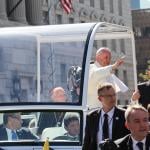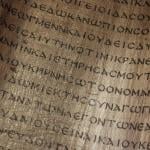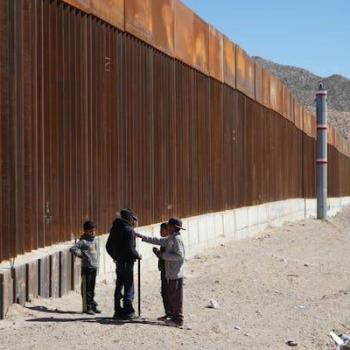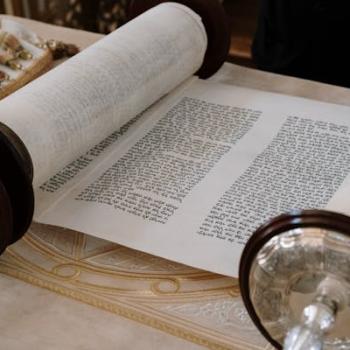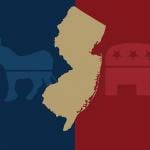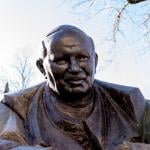
THE RELIGION GUY’S ANSWER:
The perpetually thorny issue of tax exemptions erupted in a dramatic new way last week when President Donald Trump announced that “we are going to be taking away Harvard’s Tax Exempt Status. It’s what they deserve!” The dispute over so penalizing the nation’s oldest and richest college, on top of slashing research grants, poses threats to other schools and tax-exempt organizations that provoke controversy, including religious ones.
Harvard University might be only the beginning. On Monday, The Wall Street Journal revealed behind-scenes discussions by Trump Administration officials “exploring ways of challenging the tax-exempt status of non-profits.” The Journal was unable to learn what specific names or types of institutions are vulnerable. A pivotal policy-maker will be Trump’s interim chief attorney of the Internal Revenue Service (IRS), Andrew De Mello, who in March replaced the less MAGA-fied William Paul, who in January succeeded IRS veteran Marjorie Rollinson.
A titanic federal court struggle over the Harvard precedent could grind away till next year’s Congressional election, if not longer. For starters, there’s the Republicans’ 1998 “Taxpayer Bill of Rights” reform bill that was signed by Democratic President Bill Clinton. One section makes it unlawful for a U.S. president and certain other office-holders “to request, directly or indirectly” an IRS investigation or audit of a specific target. Could Trump’s own Department of Justice prosecute him or his aides? Would the Supreme Court uphold this 1998 restriction on presidential power?
States and localities routinely follow exemptions granted by the federal IRS, not only with income but property taxes. But critics of faith groups, and politicians facing budget deficits, occasionally propose ending exemptions in this secularizing era of declining stature and influence for religion. And a 2022 YouGov poll asked Americans, “Do you think churches and religious organizations should be exempt from paying taxes?” Only 37% said yes versus a notable 41% saying no, with 23% not sure.
“Narrowly” defined
Also suggestive is the 2016 U.S. Commission on Civil Rights report arguing for “narrowly” defined religious exemptions lest they “unduly burden non-discrimination laws and policies,” especially on LGBT matters. In response, Christian conservatives protested that such removals of tax exemption would “threaten basic freedoms of religion, conscience, speech, and association.”
Or there’s the Supreme Court’s 5-4 Obergefell decision in 2015 that legalized same-sex marriage nationwide. In the oral argument, President Obama’s Solicitor General Donald Verrilli was asked whether legalization would require, for instance, that a religious college lose tax exemption if it believes in traditional marriage. Verrilli replied, “It’s certainly going to be an issue. I don’t deny that.” Chief Justice John Roberts complained that the majority’s decision failed to sufficiently protect religious conscience. Which brings up the high Court’s Bob Jones University v. United States precedent, a 1983 ruling that the IRS properly abolished that school’s tax exemption for acting “contrary to established public policy.” That test could apply to other controversies, whether at conservative or liberal campuses. The Bob Jones case involved the school’s policy (later eliminated) against interracial dating and marriage.
The basic reason for granting exemptions covers not only churches but any number of schools, charities, and cultural and educational organizations. By definition, they are non-profit so there are no profits to tax. Secular businesses send dividends to stockholders but no-one “owns” a church or charity, proceeds come from voluntary donations, and income that exceeds expenses goes into the non-profit purposes. Religions insist on fairness, so if non-profit hospitals or secular charities or museums are exempt, the same applies equally for religious non-profits. (Note there are special tax provisions regarding clergy compensation and parsonages.)
But there are limits
Exemptions do have limits. Churches pay taxes on profit-making auxiliaries. Under a debated amendment crafted by then-Senator Lyndon Johnson, they forfeit exemption if they favor or support a political candidate (though it’s legal to take moral stands on public issues). Excessive money and perks for employees are illegal, as in the famous example of TV evangelist Jim Bakker. He was hit with a 45-year federal fraud sentence (later vacated) that partly involved diverting non-profit ministry income for his lavish lifestyle.
Last December, an inspirational Web site posted a useful rundown of pro and con arguments on church exemptions at https://hopenomatterwhat.com/thought-provoking-arguments-for-and-against-churches-paying-taxes/ Some central points:
Con: Exemption drains significant money from important government programs. Instead, churches should contribute to the public services they benefit from. Churches have less financial accountability than other groups. Fraudulent entities can pretend to be religious. Exemption to one religion indirectly burdens followers of other faiths and of no faith. Religions deserve no special treatment.
Pro: Faith groups benefit individuals and society by providing emotional support, community fellowship, moral guidance, and charitable aid. They are often more nimble and effective than government or secular agencies in disaster response or meeting individuals’ personal problems. Megachurches can perhaps afford to pay, but exemption would cripple small churches in low-income and rural areas.
What about non-believers?
Proponents also cite the history of America’s consistent support for exemptions since Colonial times. This policy was formalized by Congress in 1894 and judged constitutional in 1970 by the U.S. Supreme Court in its Walz v. New York City Tax Commission decision. The lone Walz dissenter, liberal Justice William O. Douglas, contended that exemptions are an unconstitutional “establishment of religion” by government. He thought that although exemption is not a direct payment it is a government subsidy that illicitly favors religious belief and believers over non-believers,
The majority justices disagreed, deciding that exemption befits the “establishment” ban by avoiding an “excessive entanglement” between church and state that taxation involves (that test in church-state law originated with this ruling.) The court reasoned that the Constitution’s framers wanted “benevolent neutrality” in which government permits religious activity “without sponsorship and without interference.” In addition, the Court said, the U.S. has always considered non-profits, both religious and secular, “beneficial and stabilizing influences in community life” so exemptions are “in the public interest.”
That wording reminds us of considerable social science research indicating that religiously active individuals typically do better than others in psychological well-being and even physical health, tend to be more engaged in non-religious community work, and are more generous toward non-religious charities. In addition, most local congregations run charitable projects and their members quietly help countless neighbors.
Innovative research by University of Pennsylvania economists applied new “valuation” theory to 49 aspects of operations at 12 congregations in that city. The project calculated their contribution to the local economy to be $51.85 million per year, with the actual benefit very likely even bigger. (From anecdotal observations during field reporting over the years, The Religion Guy proposes that policy-makers must consider what would happen to hardscrabble urban enclaves if the churches there ran out of money and disbanded.)
A final reminder, again from the U.S. Supreme Court. Its unanimous ruling in McCulloch v. Maryland (1819) tells political power-brokers that “the power to tax involves the power to destroy,”


